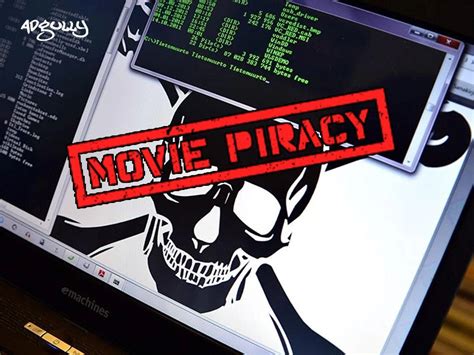Pirated Movie Websites: A Global Scourge

The allure of free content has fueled a surge in pirated movie websites, putting the film industry under immense pressure. According to the Motion Picture Association of America (MPAA), piracy costs the global film industry an estimated $71 billion annually. This alarming figure highlights the severe consequences of copyright infringement and the need for concerted action to combat this menace.
The Mechanics of Piracy
Pirated movie websites operate on a simple principle: they illegally distribute copyrighted content without the consent of the copyright holders. These websites typically acquire movies through unauthorized sources, such as camcording films in theaters or downloading them from illegal file-sharing platforms. The pirated copies are then uploaded onto the website, where users can access them for free.
The Impact on the Film Industry
Piracy has profound detrimental effects on the film industry. It:
- Deprives filmmakers of revenue, which is essential for financing future projects and sustaining the industry.
- Reduces incentives for studios to produce new content, leading to a decline in the quality and quantity of movies available.
- Undermines the livelihoods of actors, directors, and other professionals who rely on royalties and box office earnings.
Strategies for Combating Piracy
Numerous strategies are employed to combat piracy, including:
- Legal Action: Copyright holders can file lawsuits against website operators and distributors, seeking damages and injunctions to prevent continued infringement.
- Technological Measures: Anti-piracy technologies, such as digital rights management (DRM) systems, make it more difficult to copy and distribute pirated content.
- Public Awareness Campaigns: Governments and industry groups conduct public awareness campaigns to educate consumers about the consequences of piracy and encourage them to support legitimate distribution channels.
The Future of Piracy
Despite ongoing efforts to combat piracy, it remains a persistent challenge. The rise of new technologies and the increasing availability of high-quality pirated content continues to fuel its growth. However, the film industry is investing heavily in technological advancements and innovative strategies to stay ahead of the curve and protect its intellectual property.
How to Avoid Piracy
Consumers who wish to support the film industry and avoid the legal consequences of piracy should:
- Patronize Legitimate Sources: Use authorized streaming platforms, download services, and physical retailers for accessing movies.
- Report Piracy: Report pirated content to copyright holders and government authorities.
- Be Aware of the Consequences: Piracy is a crime that carries potential legal penalties.
A Call to Action
Piracy is not a victimless crime. It undermines the creativity and innovation of the film industry and robs it of its rightful revenue. Governments, industry leaders, and consumers must work together to combat this scourge, protecting the future of cinema and supporting the livelihoods of those who work in it.
Additional Resources
- Motion Picture Association of America (MPAA)
- Digital Millennium Copyright Act (DMCA)
- Alliance for Creativity and Entertainment (ACE)
Tables
| Table 1: Estimated Costs of Piracy | Table 2: Strategies for Combating Piracy | |
|---|---|---|
| Global Film Industry: $71 billion | Legal Action | |
| EU Film Industry: €1.3 billion | Technological Measures | |
| US Film Industry: $15 billion | Public Awareness Campaigns |
| Table 3: Impact of Piracy on the Film Industry | Table 4: Avoiding Piracy | |
|---|---|---|
| Lost Revenue | Patronize Legitimate Sources | |
| Reduced Incentives | Report Piracy | |
| Undermined Livelihoods | Be Aware of Consequences |
